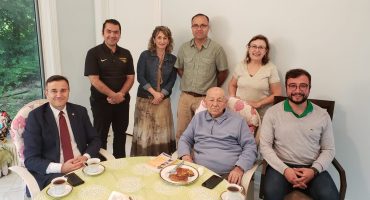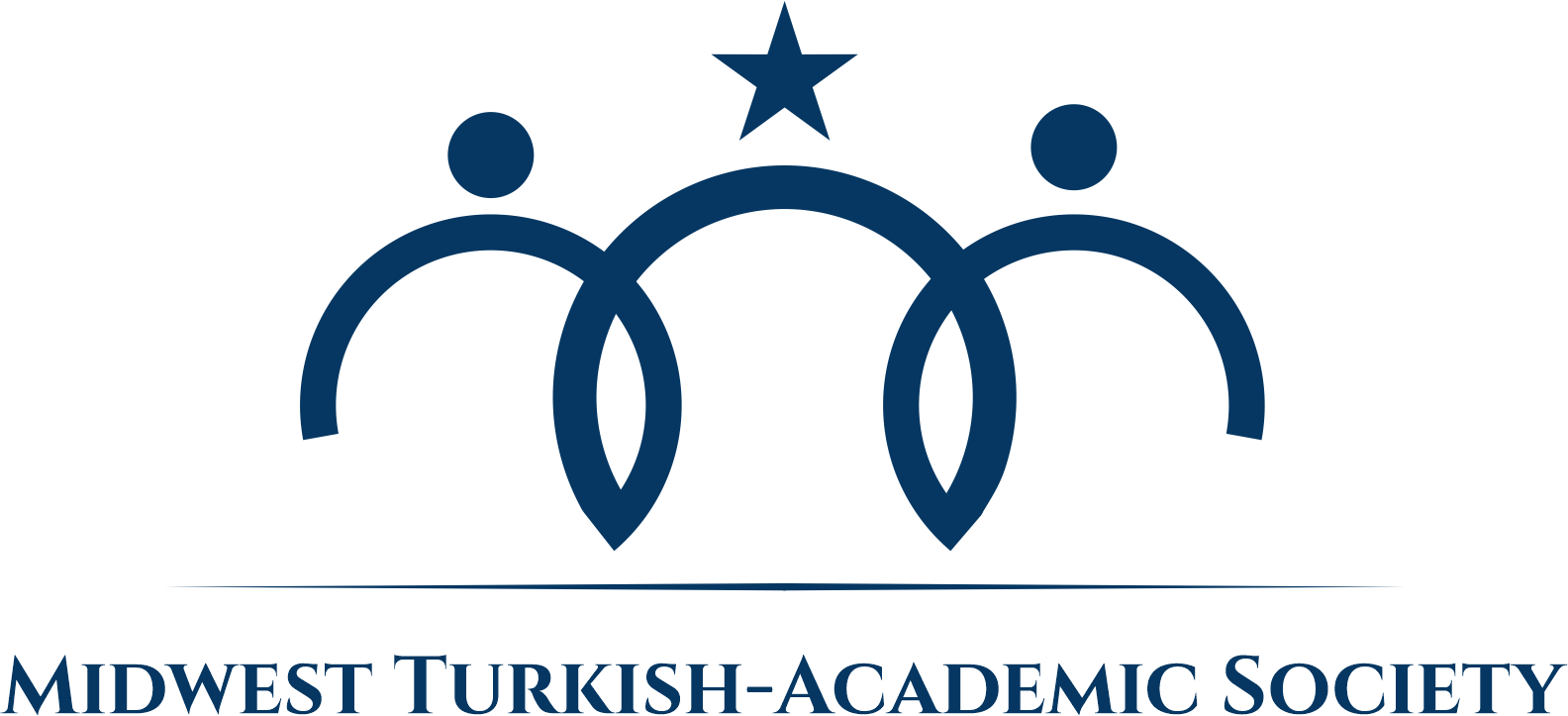Kemal Haşim Karpat is a Turkish historian and former professor at the University of Wisconsin–Madison hosts Professor Dr. Mehmet Dik, President of MTAS , MTAS Board Members, and Consul General of Chicago, Umut Acar.
Kemal Karpat was born on 15th February 1926 in the village of Babadağ / Dobruja /Romania. His full name is Kemal Haşim Karpat. He comes from a family of Tatar origin who migrated from Crimea to Dobruja, and to Anatolia from there. He grew up in North Dobruja. He was impressed from the multi-cultural and multi-faith structure of this region that was a typical
Ottoman country. This multi-cultural environment helped him to understand many problems afterwards. He says that he readmany books in the village library in his childhood but that he also needed someone who would instruct him. However, he also says that the books gave him an advantage that cannot be ignored. He indicates that another factor in his growing up is the event that the Turks in Romania migrated to Turkey.After finishing the Law Faculty of the İstanbul University, he studied for the master degree and doctorate degree on the subject of political and social sciences in the universities of Washington and Rewington. He is also the founder of the Department of Ottoman History in the University of Rewington. After specializing in the field
history in Romania, he participated in various courses on the topic of American history, Russian history, Middle East history and Ottoman history. He owns one hundred and thirty articles published in twenty countries and sixteen published books. He has the opinion that the foundations of the Turkish Republic were laid by Abdülhamit II.Kemal Karpat started his academic studies in 1950 in New York and Washington (USA) universities. After his duty in the Social Researches Department of the United Unions (1952-53), he worked as an academician and manager in science institutions such as the State University of Montana (1957-62), the Faculty of Economics and Administrative Sciences of METU (1958-59), the Harvard University (1960-61), the Robert College (1962), the Faculty of Political Sciences of Ankara University (1962), the Colombia University (1963), the New York University (1966), again the New York University (1962-67), the John Hopkins University (1967), the Department of History of the Wisconsin University (1967), the Department of Social Sciences of METU (1968-71), the
Princeton University (1972), the Ecole des Hautes Etudes en Science Sociales (Paris, 1984) and in Bilkent University (1992-93).




